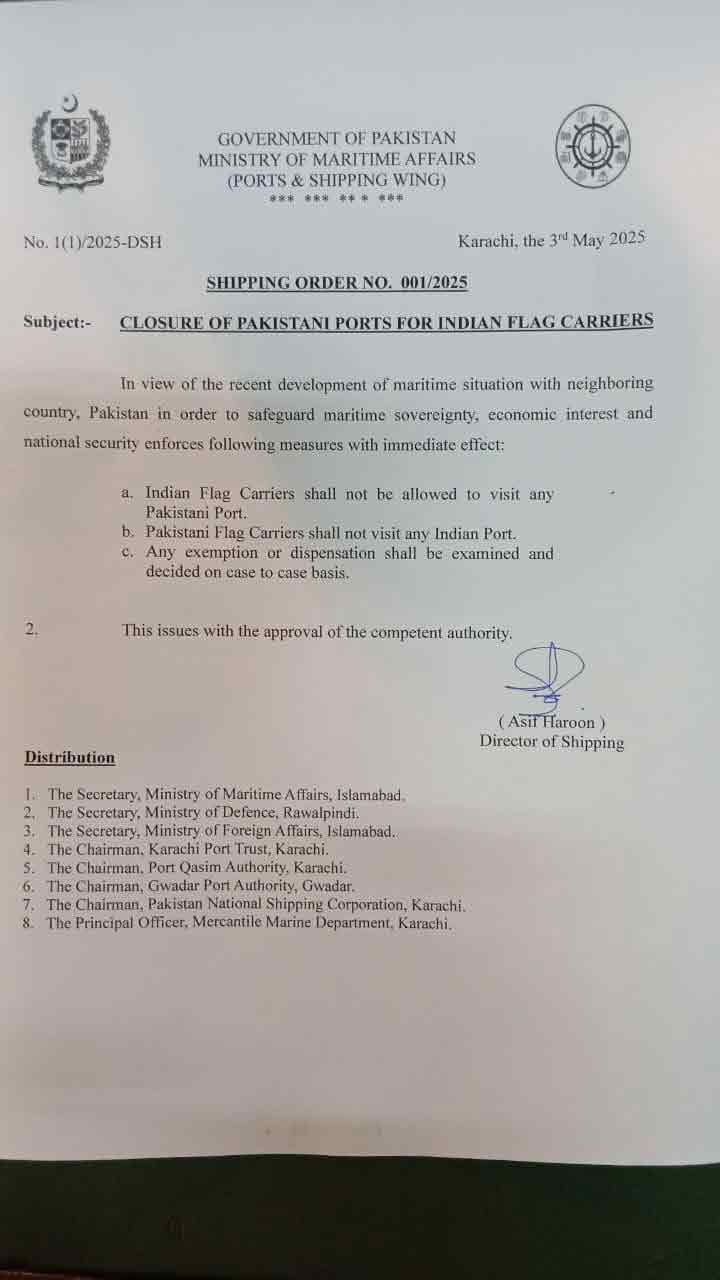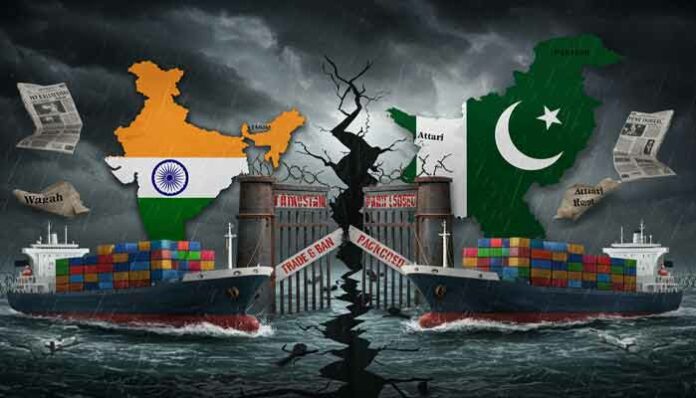Since the Pahalgam incident, the relationship between India and Pakistan has become more tense, with both nations feeling the impact. In reaction to this rising strain, Pakistan has decided to stop Indian airlines from entering its ports. This action is viewed as a part of the wider political fallout from the incident, further deepening the already fragile ties between the two countries. Pakistans Sudden Decision to prevent Indian airlines from accessing its ports reflects this increasing tension.
Pakistan Stops Indian Ships from Using Its Ports
In a bold move, Pakistan’s Ministry of Maritime Affairs has announced that it will no longer allow Indian-flagged cargo ships to dock at Pakistani ports. This decision directly responds to the rising political tensions between the two nations, signaling that Pakistan is taking a firm stance in the ongoing dispute. The ban highlights the deepening friction between India and Pakistan, which has been growing steadily in recent times. Pakistans sudden decision makes this move feel even more serious.

Tensions between Pakistan and India have been rising steadily, and in response, Pakistan has chosen to stop its ships from visiting ports in India. Authorities say this decision comes as relations between the two sides continue to break down. It reflects Pakistan’s intent to take a firm approach as the situation grows more serious. Pakistans Sudden Decision to stop sea activity is a big reason why the tension is getting worse.
Blaming Each Other Makes the Divide Between India and Pakistan Worse
The blame placed on each other has only made things harder between the two countries. Instead of uniting in grief over the attack that killed 26 people, most of whom were tourists, both sides have used it as a reason to fight. Leaders remain firm in their positions, while ordinary people on both sides continue to hope for peace. They long for understanding and a way to move past the rising tensions. Recent news points to Pakistan’s sudden decision as a sign that trust is weakening.
After the attack, India quickly blamed Pakistan, even though no evidence was given to support the claim. The quickness of these accusations only made the confusion and pain even worse for those already suffering from the tragedy. For many, it felt like the attention shifted away from the victims and onto a political argument that was far from clear. Pakistan’s Sudden Decision has made it more difficult for people and leaders to react calmly.
India has also chosen to close the Attari and Wagah borders, which have long been key crossing points between the two countries. This move adds to the growing divide, making it more difficult for people and goods to travel between India and Pakistan. For many, these borders were vital places where families could reunite and trade could happen, so the closure has a significant emotional and practical effect.
India-Pakistan Diplomatic Ties Take a Major Hit
To many, this may seem like just another event in the ongoing struggle between the two countries. However, for those involved in diplomacy and defense, it has much greater meaning. Pakistan’s sudden choice to send away its diplomatic and defense officials has raised concerns, leaving uncertainty about how India and Pakistan’s relationship will develop in the future. Pakistan’s Sudden Decision in this case is making global politics more complicated.
Pakistan immediately rejected India’s move to suspend the Indus Waters Treaty, making its stance clear amid rising tensions. This was more than a routine diplomatic response—it sent a firm message. The treaty is crucial for sharing water between the two countries. India’s decision to pause it was seen as a serious setback to future cooperation. Pakistan’s sudden rejection of the suspension has further escalated the conflict.
Pakistan Sends a Strong Warning About Its Water Rights
Pakistan has issued an unexpected and firm warning, escalating the situation. It stated that any attempt to stop or alter the flow of water, guaranteed under the Indus Waters Treaty, would provoke an act of war. Depriving downstream regions of their rights would trigger a strong and decisive response. Pakistan has made it clear that it will use all its power if provoked. This bold declaration adds to the growing uncertainty.

